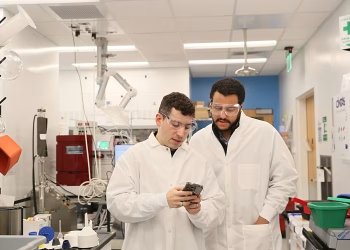EpiAFRIC and NOI Polls conducted a COVID-19 poll to unpack perceptions of Nigerians regarding the pandemic and the result was shocking. One thousand respondents were interviewed across all 6 geopolitical zones in Nigeria. Fifteen percent of respondents said that they would eat garlic and ginger to prevent COVID-19 infection. Twenty-six percent of the respondents said they were immune to COVID-19. Among the 26%, reasons given for the perceived immunity were: I am a child of God (40%), I have strong genes (30%), the hot weather (17%), I drink strong herbs (8%) and COVID-19 is not for Africans (5%).
Of course, health misinformation is not new and has been around for a long time in Nigeria. For instance, growing up, I heard that, “Eat mango and garri (cassava flakes) and you will die”; “Swallow a seed and it will grow into a tree in your stomach“; and “ to stop hiccups in a baby, place a thread on its head“. The list of suggestions that are not true is endless.
Lessons from the Ebola outbreak in Nigeria in 2014 shows how deadly fake news and misinformation can be. The misinformation about bathing with saltwater to “prevent” Ebola led to the deaths of at least 2 people and hospitalization of about 20 others in Nigeria.
Now, the World Health Organization says COVID-19 pandemic has sparked an infodemic – an overwhelming amount of information on social media and websites. Some of this information are accurate while a majority are false. The result of our opinion poll confirms there is already an infodemic in Nigeria. It is a threat to efforts to contain COVID-19.
By inference, 26% of respondents is equal to 52 million Nigerians. This shows the scale of health misinformation. It is already established that COVID-19-related health misinformation is deadlier than the pandemic itself. When people have such false beliefs, it pushes them to adopt very risk behaviors that expose them to infection with COVID-19. It is therefore unsurprising that COVID-19 cases are on the increase in Nigeria and more should be done to counter COVOID-19 misinformation and fake news in Nigeria. Indeed, countering misinformation and fake news should be an important part of any health intervention.
These are three ways to improve knowledge of Nigerians on COVID-19 so that misinformation and fake news can be stopped.
First, to change behaviours, communities need the right kinds of information. This is called risk communication. The University of Global Health Equity in Rwanda emphasizes that, to achieve equity in healthcare, there must be equity in health education. Risk communication is a way to achieving equity in health education. It helps communities understand disease causation and how their behaviors expose them to infections. Also, it helps them understand that doing the right things can prevent infections and ensure they live healthier lives. Sadly, the deficit in health workers in Nigeria hampers risk communication. However, community health workers can bridge this gap. Already, Nigeria’s National Primary Health Care Development Agency is using the Community Health influencers, Promoters, and Services (CHIPS) programme to improve maternal health across communities. This involves training Village Health Workers to provide essential services such as vaccination and nutrition. They also provide health promotions to support community surveillance and reporting of diseases with epidemic potential.
Second, use leaders that are respected and revered by community members to deliver health education. These leaders could be traditional, religious and leaders of professional associations such as taxi drivers, Keke NAPEP (Tuk Tuk) drivers, mechanics, Okada (motorcycle) riders etc. Of particular mention are traditional leaders because of their immense influence in the lives of Nigerians. Governments, civil society and health workers should begin to train religious leaders to take the lead in communicating with their followers. This would ensure there is no disconnect in the COVID-19 messaging being communicated to people of faith.
Third, use social media platforms to scale risk communications interventions. There are 26 million, 24 million, 6 million and 2 million Nigerians on Facebook, WhatsApp, Instagram and Twitter respectively. Also, there are currently 23 million smartphone users in Nigeria, and this is estimated to rise to 143 million by 2025 (in 5 years). One advantage of using social media for risk communications is reaching younger generations of Nigerians. This would ensure the messaging lasts for many generations and more Nigerians are influenced to do right things to prevent epidemics.
To be sure, the three methods already mentioned should not negate the need to keep pushing messaging through traditional mediums such as radio and TV. For instance, radio is widely used as a means to influence behaviour change in northern Nigeria. Having grown up in Kano, northwest Nigeria, I saw firsthand the influence of radio. Consequently, any risk communications intervention in northern Nigeria must include radio.
Without a doubt, countering health misinformation and fake news is a matter of life and death. This is why Nigeria Health Watch is implementing a project on countering COVID-19-related health misinformation, funded by Christian Aid UK. The objectives of this project are to gauge perceptions of Nigerians on the kinds of news which influence their behaviours and how the lessons from different stakeholders can be used to contain COVID-19.
To stop avoidable deaths in Nigeria, let’s counter health misinformation and fake news.
































